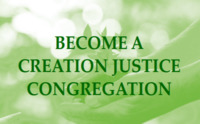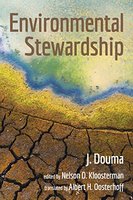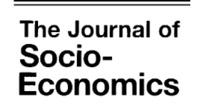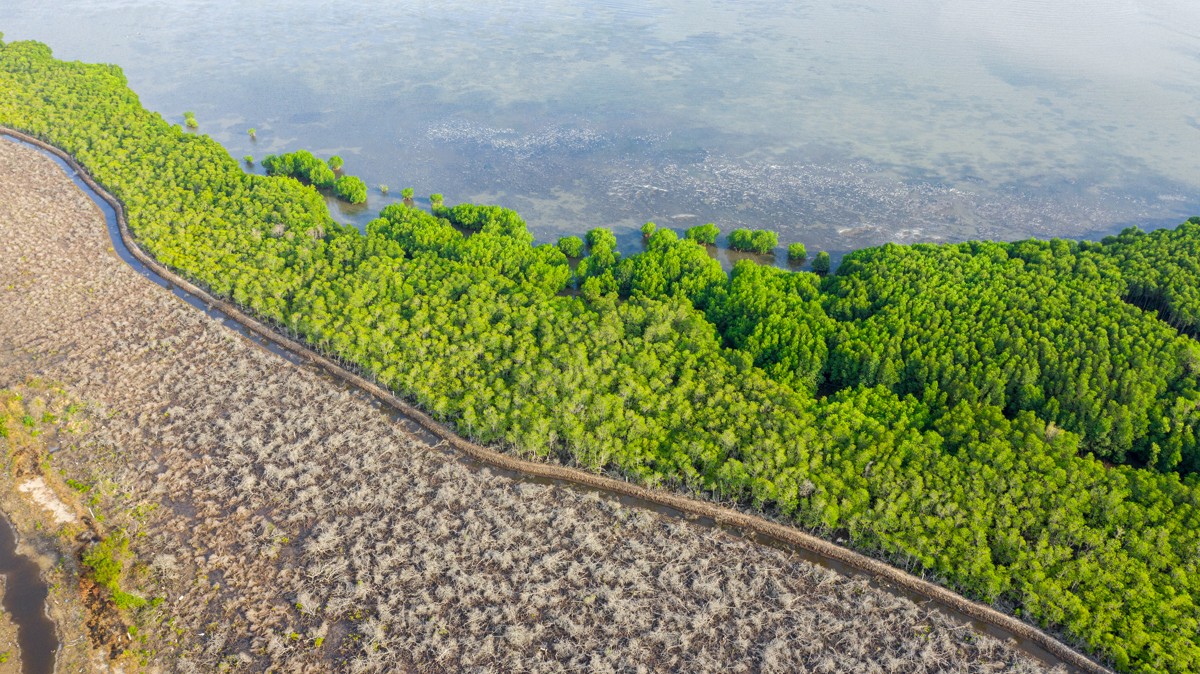Search
187 items
-
America Baptist Churches USA (ABCUSA) Creation Justice Congregations Bulletin
America Baptist Churches USA (ABCUSA) has created a bulletin insert that discusses how congregations can earn certificates of achievement for implementing eco-justice measures. Further details are discussed below:
"Creation Justice Congregations is an environmental education, stewardship, and justice program sponsored by the Creation Justice Network of the American Baptist Churches USA. Through this program your congregation can earn certificates of achievement for implementing eco-justice measures in your building, within your congregations, and in your ministries of outreach and justice.
Creation Justice Congregations has three stages, each with a checklist of suggested education, worship, and other action items that can help bring Baptist churches into the wider movement for peace, justice, and reconciliation with all of God's creation. " -
Message of His All Holiness Ecumenical Patriarch Bartholomew on the Day of the Protection of the Environment
Patriarch Bartholomew I of Constantinople delivered a speech on January 9, 2018 for the Day of Prayer for the Protection of the Environment. The following one salient excerpt from the speech:
"The Ecumenical Patriarchate’s ecological initiatives provided a stimulus for theology to showcase the environmentally-friendly principles of Christian anthropology and cosmology as well as to promote the truth that no vision for humanity’s journey through history has any value if it does not also include the expectation of a world that functions as a real “home” (oikos) for humanity, particularly at a time when the ongoing and increasing threat against the natural environment is fraught with the possibility of worldwide ecological destruction. This evolution is a consequence of a specific choice of economic, technological and social development that respects neither the value of the human being nor the sanctity of nature. It is impossible to truly care for human beings while at the same time destroying the natural environment as the very foundation of life, essentially undermining the future of humanity." -
Episcopalians Confronting Climate Change
This article discusses American Episcopalians' concern over climate change and the impact with regard to those facing poverty. The introduction to the article is stated below:
"In September 2011, the House of Bishops in the Episcopal Church, attending a meeting in Quito, Ecuador, sent a pastoral letter to Episcopal clergy worldwide expressing 'mounting urgency' to address climate change within church membership. The letter argued the critical need for Christians to care for all of God’s creation and urged that justice be sought for the poor, who it said will suffer most from climate change." -
Preachable Moments: Evangelical Christians and Climate Change
This article by Yale Climate Connections provides encouraging news of how some evangelical Christians are re-examining their stance on climate change. The following is an excerpt from the article:
"About 60 percent of evangelicals think climate change has nothing to do with human activities. By comparison, less than half of all Americans, or 47 percent, share that view. (Both figures are in sharp contrast to the overwhelming majority of climate scientists who agree that climate change is occurring and primarily caused by human actions).
Richard Cizik sees climate change as ‘top-tier issue’ for younger evangelicals. But the theological doors are beginning to open. Signs are that more evangelicals now are addressing climate change as a moral issue that appeals to the conscience of their Christian communities." -
Climate Change: An Evangelical Call to Action
This statement on climate change from members of the Evangelical Climate Initiative encourages church leaders and congregation members do what they can to take action to protect the Earth. A brief description of the group is provided below:
"The Evangelical Climate Initiative (ECI) is a group of over 300 senior evangelical leaders in the United States who are convinced it is time for our country to help solve the problem of global warming. We seek to do so in a way that creates jobs, cleans up our environment, and enhances national security by reducing our dependence on foreign oil, thereby creating a safe and a healthy future for our children. Our deep commitment to Jesus Christ and his commands to love our neighbors, care for “the least of these,” and be proper stewards of His creation compels us to act. Our views are articulated on the ECI statement page." -
ELCA issues statement on Pope Francis’s encyclical on climate change
In an effort to demonstrate solidarity of interfaith-based environmental action, the Evangelical Lutheran Church in America released a statement in support of Pope Francis's encyclical on climate change. The following concluding excerpt emphasizes the movement of solidarity within the statement:
"Today we join with Pope Francis in calling on world leaders to embrace our common responsibility as work continues toward a global agreement on climate change. We urge leaders to support an ambitious agreement that reduces greenhouse gas emissions, encourages development of low-carbon technologies, and supports the ability of countries to cope with the effects of a changing climate and build resiliency for a sustainable future." -
Lutherans Reflect on Climate Change Conference in Copenhagen
This article discusses some of the sentiments regarding proceedings from the 2009 United Nations Climate Change Conference in Copenhagen. While some attendees expressed disappointment in the outcome, others were more optimistic about steps which may lead to more effective action for climate change in the future. The following excerpt provides a brief description of the event:
"More than 3,000 ELCA members, along with a coalition of U.S. faith leaders, sent some 20,000 postcards to President Barack Obama, urging him to be at the meeting, she said. Obama attended the conference and urged leaders of Brazil, China, India and South Africa to join the United States 'to fund developing nations' projects to deal with droughts,
floods and other impacts of climate change, and to develop clean energy,' among other agreements, according to a U.N. news release." -
Why Lutherans Care for Creation
This article discusses how various concepts of Lutheran theology are woven into ecological messages with regard to God as creator, human interactions, and ways of worship. The following is a section from the introduction of the article, emphasizing human responsibility towards care for the Earth:
"For Christians, care of the Earth is not an 'environmental cause.' Rather, it is central to our holy calling to treasure the Earth and to care for it as our common home, fully integrating creation-care into our love of God and neighbor. Without sacrificing the transformational effects of the 16th-century Reformation, we are called to embrace an eco-reformation that will re-examine and rethink how we read the Bible, how we can expand the scope of our theology, how we can reconfigure our personal vocation and our common ethic, how we worship, how we organize our church life together, and how we understand ourselves as creatures within creation as a whole. This call to continuing reformation is for the whole church, not solely for the committed. Earth care is not an add-on. It is not just for those who happen to be interested in it. It is a call for all Christians to participate in this great work of our time." -
Caring for Creation Today
This video, put forth by the Evangelical Church in America, encourages individuals to act as stewards by both assisting those in need and caring for our land, as God had intended. The salient message is to do what you can to work for change and care for God's creation, as this is our duty as humans. -
Engaged Organizations: Islamic Society of North America
The Islamic Society of North America, headquartered in Plainfield, Indiana, has been described as the largest Muslim community in North America. Their vision includes empowerment of the Muslim community to strengthen interfaith relations, increase civic engagement, and promulgate a better understanding of the Islamic faith. They strive for organizational excellence, achieving this in part through their efficient operations, transparency, and financial stability. They seek to achieve their strategic goals by providing high quality programming and services for the Muslim community, increasing opportunities for civic engagement, and hosting an annual convention to gather in large numbers and discuss current issues that are affecting their community.
Part of the organization's mission is to focus on increasing sustainable practices within the Muslim community. Through the work of the Masjid Development Committee in December 2014, the ISNA Green Masjid Initiative Team was formed as “Green Masjid Task Group” and later renamed the "ISNA Green Initiative." The intent was to create awareness and to provide guidance on transforming mosques/Islamic centers to become more environmentally friendly through the use of sustainable practices. -
Resources for Preaching & Speaking on Climate Change
The resource gives information for preachers and other religious figures to use when talking about climate change. It starts by giving reasons for preaching about climate change and why it is important for us now and in the future. It also gives facts from scientists on the climate which mentions the aspects of climate change such as the causes and effects on the environment, and what humans can do to help. The article then gives biblical themes related to climate change and also gives advice for religious leaders to overcome possible barriers when preaching. -
Engaged Organizations: Global Oneness Project
The Global Oneness Project was founded in 2006 as an initiative of Kalliopeia Foundation, and is focused on education aimed a planting seeds of empathy, resilience, and a sacred relationship to our planet. They are passionate about the power of stories and offer a rich library of multimedia stories comprised of award-winning films, photo essays, and essays as well as companion curriculum and discussion guides focused on world culture, social justice and sustainability. -
What Karl Marx has to say about today's environmental problems
Ted Benton, a Professor of Sociology at the University of Essex, writes about how Marx's theories can be applied to modern environmental issues such as climate change. He talks about how Marx's ideas about capitalism relate to current exploitation of nature, and specifically about soil degradation which was an issue during the 1860s when Marx was alive. He also includes problematic parts of Marx's attitudes towards nature, such as his praise of increased productivity of land that may have inspired Stalin. -
Environmental Stewardship
This book goes into detail about how the Christian religion goes about environmental stewardship. They look at how bible passages talk about preserving the Earth and the morals we should have surrounding it. It dives deep into how science interacts with human interaction with the Earth and the damage that we have done to Earth, as well as what we should do to correct ourselves. -
How Buddhist monks in Ladakh are fighting climate change
Buddhists Monks in the Himalayas are taking a stand to climate change. On Earth Day 2018, thousands of people came together in the village of Yerat to plant trees. The region is rapidly losing glaciers, causing a shortage in water supply to the villages in the area who rely on snowmelt for water. The volunteers were inspired to participate due to their devotion to His Holiness Kyabgön Chetsang Rinpoche and his vision for "a more verdant and organic Ladakh." -
Five Years After Speaking Out on Climate Change, Pope Francis Sounds an Urgent Alarm
This article covers Pope Francis's reaction to the world governments responses to climate change. The Pope writes to unite people through religion in an effort to bring awareness to the movement. The article details how the church is divesting in fossil fuel companies. The article also focuses on the political divide and how it affects people's views on the climate crisis. -
Overpopulation and the Lifeboat Metaphor: A Critique from an African Worldview
Many scientists have warned that the earth is nearing overpopulation or has already reached its carrying capacity. Garret Hardin proposed the lifeboat ethics metaphor to address this crisis and proper resource distributions. Okyere-Manu comments that this metaphor does not take into account the African political and cultural worldview. Hardin's metaphor is also reliant on inequality which disproportionately affects vulnerable communities. -
Religion and animal welfare: Evidence from voting data
This article, written by Julio Videras, works to analyze the factors that contributed to a 2002 ban on farming practices in Florida that were deemed cruel to pigs. Not only is religion taken into account (specifically Catholicism and Evangelical denominations), but political and socioeconomic factors are also considered. Videras argues that political affiliation and socioeconomic factors play more of a role in people's opinion of the ban than religious factors do. -
FORUM2020: Science, Spirituality, the Climate Emergency and Our Future
Presented by The Temple of Understanding, this two-day event features over forty international speakers including Indigenous leaders, religious and spiritual visionaries, and youth environmental activists. The Forum will consist of three 30-minute panels addressing climate emergencies and action plans. The first panel is the "State of the Earth Panel" and addresses climate from different perspectives. The second is "Women in Leadership on the Environment Panel" and the third is "Intergenerational Wisdom & Our Future Panel" where action-based programs will be discussed. "Over forty international speakers will be offering their wisdom and perspectives through keynote addresses, diverse panels, inspiring prayers and sacred music at FORUM2020 online" -
15 Green Religious Leaders
This article contains a list of spiritual leaders that openly advocate for the protection of the environment. The 15 names are listed then followed by a description of their faith and views on the natural world. The article portrays that throughout different religions, many leaders are starting to encourage a sort of "eco-gospel." -
The Sierra Club Efforts to Protect Wildlife
The Sierra Club is a nonprofit Environmental organization based in the United States and was created in 1892. Among their many environmental initiatives they plan on conserving wildlife. The Sierra Clubs goal is to protect 30% of the natural world by 2030. Not only will preserving the land wildlife it will also provide people with clean water, clean air, and climate stability. This article describes the Sierra Clubs involvement with Endangered Species Day. -
Model Environmental Justice Projects
This booklet summarizes 35 model environmental justice projects that were highlighted by the National Religious Partnership for the Environment in 1997. Out of more than 100 projects identified and researched within NRPE denominational networks, these 35 were chosen as the most representative and robust. To raise awareness of their work, the local project leaders each wrote letters to Secretary of the Interior Bruce Babbitt and Vice President Al Gore to accompany a meeting of senior religious leaders in Washington, DC, raising a witness to the environmental justice work of these congregations. -
Indigenous peoples and local communities offer best hope for our planetary emergency
Indigenous peoples steward 80 percent of the world’s remaining biodiversity, yet their voices are often excluded from decision-making. Moreover, such environmental defenders remain a vulnerable group that is troubled by intimidation and torture. In this article, the authors cover a few organizations, such as Nature for Life Hub and Youth4Nature, established to empower and defend the voices of indigenous peoples, local communities, and the youths. -
Muslims for Progressive Values
MPV (Muslims for Progressive Values) establishes and nurtures vibrant progressive Muslim communities. We do this by creating opportunities for religious discourse, volunteer and community activities, and cultural events bringing together the arts, spirituality, and social activism.
Since our inception, we have secured DPI and ECOSOC Special Consultative Status at the U.N., and a founding member of the Alliance of Inclusive Muslims, or AIM, an umbrella organization spanning 13 countries and 17 cities.
MPV is a progressive Muslim voice on contemporary issues. We voice our perspectives with policy briefs, by participating in civil discourse, engaging with the media and government entities, and by partnering with both Muslim and non-Muslim progressive organizations.
MPV promotes theologically-sound frameworks for Islamic liberalism. We seek to reinvigorate the Islamic tradition of ijtihad (critical engagement and interpretation of sacred texts) and intellectual discourse. We do this by collaborating with religious scholars and developing position papers on theological issues that are accessible to a wide audience.
Muslims for Progressive Values has been in existence since 2007. Quietly and diligently, we have been building our progressive community, one city at a time, and now one country at a time. Since its inception, MPV has expanded to include communities in Los Angeles, San Francisco, Washington DC, Atlanta, Columbus (OH), New York, Chicago, Boston, Minnesota and The Netherlands. -
Applying the hard lessons of coronavirus to the biodiversity crisis
In this article, Jamison Ervin, Manager of Nature for Development at UNDP, summarizes key lessons we have learned during the Covid-19 pandemic and how these can be applied to environmental protection efforts.

























